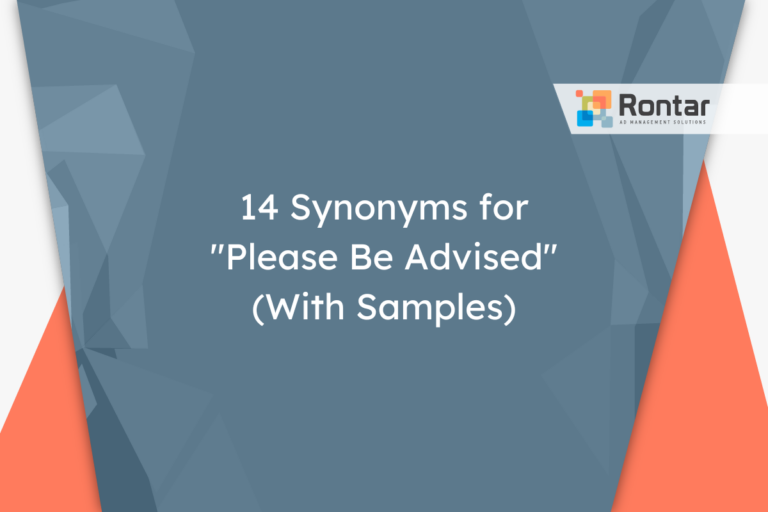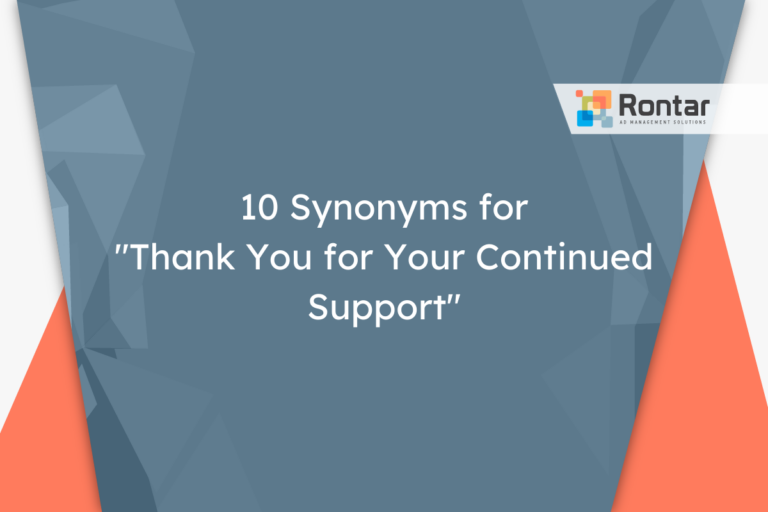12 Professional Ways to Say “See You Tomorrow”

Saying “See you tomorrow” is a common way to end conversations, but sometimes you might need a different phrase. Whether you’re in a professional setting or just looking for variety, it’s good to have options.
This article provides twelve alternatives to “See you tomorrow,” each suited for specific situations. From more formal phrases to casual ones, you’ll find the right way to say goodbye and set the stage for your next meeting.
Is It Professional to Say “See You Tomorrow”?
When it comes to professional settings, the phrase “See you tomorrow” can be considered informal but also polite and friendly. This phrase is most appropriate with colleagues you’re familiar with, especially after a day’s work implying you both will be back the next day. “See you tomorrow” works well in person, over the phone, or via less formal emails and messages where the tone is already informal.
Here is an example of using “see you tomorrow” in an email:
Hi Emily, Thank you for today's meeting. I believe we covered a lot of ground and I'm eager to continue our discussion. See you tomorrow at the follow-up session. Best, Alex
Pros:
- Makes the conversation feel friendly and open.
- Shows confidence in a continued working relationship.
- Is easy and quick to say or write.
Cons:
- May not be suitable in very formal contexts.
- Could be seen as too casual with new or senior colleagues.
- Assumes the availability of both parties without previous confirmation.
Sometimes, someone might want to use an alternative phrase to “see you tomorrow.” This can be because they’re looking for a synonym that fits a more formal context or they prefer using alternatives that sound less casual. Depending on the work environment, or who you’re speaking to, choosing a synonym or an alternative can help maintain a professional tone while still being polite.
12 Other Ways to Say “See You Tomorrow”
If you’re looking for a different way to express the sentiment of “see you tomorrow” in a more suitable context, here are twelve professional alternatives. Each has its own tone and is suited to different situations.
- Looking forward to our meeting tomorrow
- I look forward to seeing you tomorrow
- See you at our scheduled meeting tomorrow
- Talk to you tomorrow
- Looking forward to tomorrow
- Until our conversation tomorrow
- Let’s continue this tomorrow
- Until tomorrow
- Until tomorrow, take care
- Till tomorrow, then
- Catch you tomorrow
- See you in the morning
1. Looking forward to our meeting tomorrow
This phrase is more formal and professional compared to the simple “See you tomorrow.” It sets a positive and anticipatory tone for an upcoming meeting. It is particularly well-suited for emails, letters, or conversations where future engagements are being discussed in a professional setting.
It is most appropriate when used with colleagues, clients, or any professional associates with whom you have scheduled appointments. This polite expression is best for written communications but can also be used verbally in face-to-face or phone conversations.
Example of use in an email:
Hi George, As we wrapped up today's discussion, I just wanted to reiterate how much I value your insights. Looking forward to our meeting tomorrow to dive deeper into the solutions we discussed. Best regards, Mia
2. I look forward to seeing you tomorrow
This alternative is slightly less formal than the first, but still maintains a level of professionalism and politeness. It’s a good synonym for “see you tomorrow” when you want to add a personal touch. It suits one-on-one interactions best.
This phrase is ideal for use in emails or messages when you want to express anticipation for a meeting or event. It is best used with individuals you are familiar with in a professional setting, such as team members or project partners.
Sample message:
Hello Lisa, Thank you for your hard work on the recent project. Your contribution has been invaluable. I look forward to seeing you tomorrow to discuss the next steps. Warm regards, Tom
3. See you at our scheduled meeting tomorrow
This specific and formal alternative underlines the importance of a scheduled event. It reaffirms the commitment to a forthcoming meeting, making it highly professional. It’s especially useful when confirming the details of a planned gathering.
This phrase is best suited for reminders or confirmations sent to colleagues or clients. It works well in emails and verbal communication but is particularly effective in written forms as a polite reminder.
Here’s an example:
Hi Anita, Just a quick note to confirm our catch-up as planned. See you at our scheduled meeting tomorrow. Please let me know if there's anything specific you'd like to cover. Best, Jordan
4. Talk to you tomorrow
This is an informal but friendly synonym of “see you tomorrow.” It’s great for a casual work environment or when you have a close relationship with your colleagues. It indicates a desire to continue the conversation, making it slightly less formal.
This phrase is better suited for colleagues or team members you communicate with regularly. It’s perfect for the end of phone calls or in casual emails where the tone is laid back.
Example email:
Hey Chris, Thanks for sharing your ideas today, truly inspiring stuff. Talk to you tomorrow and let's nail down those details. Cheers, Sam
5. Looking forward to tomorrow
This phrase is more informal than formal but remains polite. It’s a nice way to show enthusiasm about the next day without specifying an event. It fits in well in conversations where the context is already clear to both parties.
It works best with colleagues you are friendly with or in situations where the next day’s plans are previously known and eagerly anticipated. This alternative is perfect for informal emails, messages, or in-person conversations at the end of the day.
Here’s a quick example for you:
Hi Jenna, Today's brainstorming session was a blast, and I've got high hopes for our project. Looking forward to tomorrow! See you, Brett
6. Until our conversation tomorrow
This is a formal and professional way to express that you’re expecting a conversation the following day. It’s direct and implies a planned discussion or meeting, making it suitable for a work environment.
Great for use with colleagues, superiors, or clients when a dialogue has been scheduled. This phrase fits well in emails or written messages as a respectful and polite sign-off.
Example use in an email:
Dear Mr. Dawson, Thank you for your guidance on the project proposal. Your feedback has been incredibly helpful. Until our conversation tomorrow, please find attached the revised document for your review. Sincerely, Nora
7. Let’s continue this tomorrow
This alternative is informal but effective for indicating that a conversation or project will carry on the next day. It suggests an ongoing process and teamwork, providing a proactive tone.
This phrase is most suitable for interactions with team members or colleagues you work closely with. It’s ideal for in-person conversations, phone calls, or casual emails where the dialogue has been collaborative and ongoing.
Example in context:
Hello Team, Great progress today, and I'm thrilled by everyone's dedication. We're really coming together on this. Let's continue this tomorrow. In the meantime, please share any updates on your end. Thanks, Olivia
8. Until tomorrow
This is a short and informal way to say goodbye, carrying a casual tone. It’s succinct and conveys the message directly without much formality. This makes it ideal for less formal workplace environments or among colleagues with whom you have a friendly rapport.
It is best used in casual messages or at the end of conversations. It can also be effectively utilized in emails to close colleagues or in verbal parting words after meetings.
Example:
Hi Mike, All set for the presentation. I've checked the equipment, and we're good to go. Until tomorrow! Best, Sarah
9. Until tomorrow, take care
This phrase adds a layer of care to the simple “Until tomorrow,” making it slightly more formal and polite. It’s nice to use when you want to show concern for the other person’s well-being while still keeping the conversation light.
It’s especially suitable for close colleagues, friends at work, or when concluding messages that involve personal topics. This phrase is versatile and can comfortably fit in both written and oral communications in less formal settings.
Example:
Hey Paula, Thanks for sharing your insights today. Your perspective is always enlightening. Until tomorrow, take care. Warmly, Tina
10. Till tomorrow, then
This is an informal and somewhat brisk way to end a conversation. It’s conversational and implies an agreement or continuation the next day. While casual, it remains polite and signifies a brief pause in dialogue.
It fits situations where discussions or tasks are paused until the next day. Suitable for use among team members or peers, particularly in more relaxed work environments. This can be used both in verbal sign-offs and in casual written communications like emails or texts.
An example in an email:
Hi Leo, Finished reviewing the draft. I've left a few comments for your attention. Till tomorrow, then. Regards, Evelyn
11. Catch you tomorrow
This alternative is quite informal and suggests a relaxed, friendly rapport between individuals. It’s similar to saying “See you later” but with a specific reference to the next day. This expression has a light-hearted tone, making it perfect for casual work environments.
This is perfect for conversations with coworkers or even in team chats where everyone maintains a friendly demeanor. It would not be suitable in more formal contexts or when writing to someone in a higher position unless you have established camaraderie.
Here is a quick example:
Hi Dan, Loved the ideas you shared at today's workshop. Really innovative thinking. Catch you tomorrow for coffee to discuss more? Best, Samantha
12. See you in the morning
This phrase is more informal but assumes that you will meet the recipient early the next day. It’s warm and friendly, ideal for when you expect to see someone the following morning. It suits scenarios where there is a pre-established meeting or work to be done early.
This is well suited for colleagues or teams that have a good relationship and are likely to see each other the following day. It’s best for use in conversations at the end of the day or in final messages before leaving work.
Here’s how you might use it:
Hello Team, Thanks for the hard work today. We're on the right track with the project. See you in the morning to finalize the presentation. Cheers, Mark
Final Thoughts
Choosing the right way to say “See you tomorrow” can shape how your message is received. The options we explored range from formal to casual, fitting different professional and personal contexts. This variety allows you to communicate effectively, acknowledging the relationship and setting you’re in.






